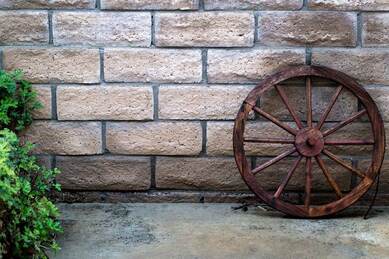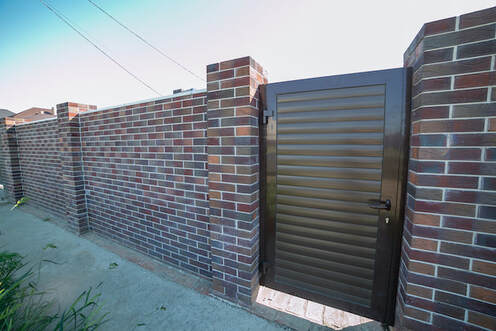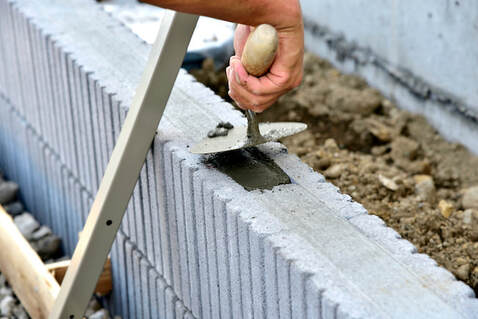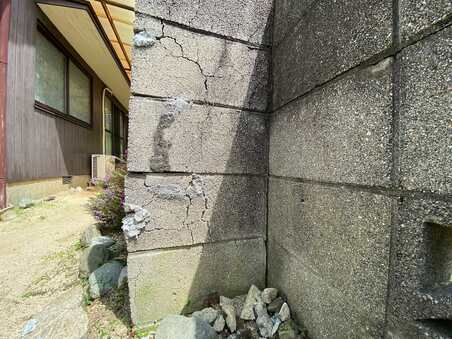Block Wall Installation and Repair Contractor in Tempe, AZ
Our contractors do it all- from retaining block wall fence repair to custom gate design. We also specialize in block wall covering and painting for existing structures.
We are proud to be a reputable and respected residential and commercial block fence company in Tempe, Arizona- and a leading gate company for the city. Contact our custom gate installation and block wall team for your next reno or fence or gate repair. You can reach us by phone (our number is on our website)- or send us your details through our online free quote request form at any time. |
|
Our Elite Block Fence Services
We are a company of two halves- the first being our cinder block fence services.
Our services in this sector are far more diverse than many other fence companies- and our contractors are exceptionally good at what they do. They are qualified and experienced in the following block wall and fence services.
Here is a little more information about what we can do for you on your next project.
Our services in this sector are far more diverse than many other fence companies- and our contractors are exceptionally good at what they do. They are qualified and experienced in the following block wall and fence services.
- Block wall installation
- Block wall repair
- Block wall covering and painting
Here is a little more information about what we can do for you on your next project.
Block Wall Installation
Block wall installation is an Arizona property owner’s best friend for many reasons- including resistance to extreme weather, the versatility of the designs, and the long-term low maintenance requirements.
Our team of qualified concrete wall construction professionals are masters of this craft- and can put it to good use for you in many ways.
Our team of qualified concrete wall construction professionals are masters of this craft- and can put it to good use for you in many ways.
|
- Security walls: Protect your property with a wrought iron security fence or block wall.
The good news is that our block wall builder can work with you to create beautiful and durable installations that suit your home.
Block Wall Cost
Block wall cost varies substantially from project to project since there are many factors that influence pricing. To give just one example, it typically costs more to install retaining walls than freestanding masonry fences per square foot of wall since it requires more substantial excavation and the installation of drainage solutions.
The average block fence cost is higher than that associated with cheaper, less durable fencing materials like wood, vinyl, and chain link. Factors that can influence the final cost of installing a new wall can include:
The average block fence cost is higher than that associated with cheaper, less durable fencing materials like wood, vinyl, and chain link. Factors that can influence the final cost of installing a new wall can include:
The longevity of block fencing helps to offset the initial investment, and most clients will see their property values rise after installing a new masonry fence. |
Block Wall Repair
Block wall repair services may be required if your installation is old or has suffered due to extreme weather or unforeseen circumstances. The process to repair a block wall is simple enough for those who know how- but it is important to have a professional do it.
|
Our contractors are experts- specializing in retaining wall repair and cinder block maintenance. They also provide fencing removal and site clearing if you want to get rid of your current fences.
If you have a concrete block wall that needs taking down, we also offer demolition services. Our wall demolition team is safe, efficient, ethical, and respectful of your property. Unlike some fence removal companies, we ensure your area is left in excellent condition- free of debris and hazards. Lastly, we provide pool removal & demolition services- as well as professional pool excavation. |
Block Wall Covering and Painting - Creative Solutions
Don’t be put off by the appearance of block walls- use these exterior cinder block wall covering ideas to get the look you want.
Block wall covering and painting lets you keep all the benefits of block walls without the dull exterior concrete finish. Our decorators, masonry experts, and stucco contractor can decorate concrete wall installations to look exactly how you want them to.
Work with a Trusted Masonry Contractor Who Does It All
Your masonry contractor should be honest, ethical, professional, and efficient- and we tick all the boxes. Whether you are looking to build a privacy fence to protect your comfort and security or are looking to brighten up your yard with a decorative covering- our elite team and their vast range of block wall services are here to help.
Call us today via the number listed on our website, or fill out the online form to request a free quote for your project. There are no strings attached- this is just another one of the ways we assist Tempe homeowners. What have you got to lose?
- Paint: Painted cinder block wall is bright, colorful, low-maintenance, and versatile.
- Stucco Installation: Putting stucco on your wall hides imperfections and makes it more visually interesting. Stucco repair is easy- our stucco crack repair experts can fix it in no time.
- Veneers: Covering block walls with brick or stone veneers makes them look beautiful- without the lengthy building process or hefty price tags.
Block wall covering and painting lets you keep all the benefits of block walls without the dull exterior concrete finish. Our decorators, masonry experts, and stucco contractor can decorate concrete wall installations to look exactly how you want them to.
Work with a Trusted Masonry Contractor Who Does It All
Your masonry contractor should be honest, ethical, professional, and efficient- and we tick all the boxes. Whether you are looking to build a privacy fence to protect your comfort and security or are looking to brighten up your yard with a decorative covering- our elite team and their vast range of block wall services are here to help.
Call us today via the number listed on our website, or fill out the online form to request a free quote for your project. There are no strings attached- this is just another one of the ways we assist Tempe homeowners. What have you got to lose?
All About Our Gate Services
Block walls don’t get all the glory- we are also a reputable and highly skilled gate company- working with various materials, styles, and techniques to help our clients keep their properties safe. Gates are one the first things people see when they approach your property- so they deserve a little attention.
They are not only a potential aesthetic feature- but they are also one of the most important parts of your home security. The good news is, with our gate services, you can have a beautiful and long-lasting gate that protects against trespassers and gives you a little extra peace of mind.
To help us give that to you, we offer the following services:
Whether you need a new gate upgrade or want to fix the one you have, we can help. Here is more information about what we do.
They are not only a potential aesthetic feature- but they are also one of the most important parts of your home security. The good news is, with our gate services, you can have a beautiful and long-lasting gate that protects against trespassers and gives you a little extra peace of mind.
To help us give that to you, we offer the following services:
- Gate installation
- Gate repair
Whether you need a new gate upgrade or want to fix the one you have, we can help. Here is more information about what we do.
Gate Installation - Versatile and Value-Adding
Every property can benefit from professional gate installation. The added security is an obvious upside- but our gate installers can also provide you with a piece that looks great and becomes a shining feature. We work with wooden, metal, and wrought iron gates in their many shapes, styles, and sizes, and collaborate with you to create the ideal fitting and bring your vision to life.
Here are just a few of the possibilities.
Here are just a few of the possibilities.
- RV gate installation: If you have a large recreational vehicle but can’t get it onto your property, a made-to-measure metal RV gate is the answer to your problems!
- Privacy gates: Choose from wooden or metal privacy gates to shield your property from onlookers.
- Iron pool gates: Having a pool is great, but the fear of children, pets, and wildlife falling into the water can detract from the enjoyment. A secure pool gate lets you control access and gives you valuable peace of mind.
- Driveway gates: Our custom driveway gates can be altered to perfectly match your requirements and preferences. We also help you decide the best opening system to make your driveway entrance safer, more practical, and a little more stylish.
- Courtyard gates: We provide a range of decorative iron courtyard gates.
- Our custom fence gates work for front and backyard gate entrances.
Gate Repair - We Provide Fast and Efficient Services
Your gate can only effectively help keep your property safe if it is working properly- which is where our gate repair services come in. There are plenty of reasons you might need to have a gate repaired:
Many of these issues can be avoided through regular gate servicing- especially if you choose a fairly low-maintenance material. You can call us out any time you want to give your gate a quick once over.
As a gate repair company, we provide the following services.
As one of Tempe’s most trusted gate companies, we take pride in handling repairs quickly, efficiently, and cost-effectively- always looking for the best solution that will last- rather than the most convenient quick fix.
- Wear and tear over time
- Storm damage
- Rust and corrosion
- Flaking paint
- Rot
- Blocked or broken hinges, locks, or rollers
- Trauma damage to the gate doors (even the best drivers can misjudge it sometimes!)
Many of these issues can be avoided through regular gate servicing- especially if you choose a fairly low-maintenance material. You can call us out any time you want to give your gate a quick once over.
As a gate repair company, we provide the following services.
- Commercial and residential gate repair: Whether you own a private home or a commercial space, you can hire our team.
- RV gate repair: Many Tempe homes now have RV gates- which are often custom-made and require specialist contractors to work on them. We handle RV gate replacement and repairs of all kinds.
- Maintaining and mending iron gates: Our iron gate repair service covers rust removal, re-welding broken rods or beams, straightening bent iron hinges and pickets, and assessment of faulty runners or other mechanical parts. We can also replace iron gates that are beyond repair.
- Wooden gate repairs: Wood often requires some attention- we can help with whatever you need.
As one of Tempe’s most trusted gate companies, we take pride in handling repairs quickly, efficiently, and cost-effectively- always looking for the best solution that will last- rather than the most convenient quick fix.
A Reliable Gate Contractor with a Reputation for Excellence
It makes a difference working with an elite gate contractor you can rely on- and as our reputation confirms, we are dependable, honest, and highly skilled. From custom gate services to quick repair jobs- our team has your back.
Contact the leading local experts in all things gate installation now. Speak to one of our professional, friendly team members over the phone, or fill out the request form on our website for a fast and acute job quote completely free of charge.
It makes a difference working with an elite gate contractor you can rely on- and as our reputation confirms, we are dependable, honest, and highly skilled. From custom gate services to quick repair jobs- our team has your back.
Contact the leading local experts in all things gate installation now. Speak to one of our professional, friendly team members over the phone, or fill out the request form on our website for a fast and acute job quote completely free of charge.
Qualified Gate and Fence Contractors Who Put You First
Few block fencing companies offer as wide a range of services as we do- or at as high a standard as our craftspeople guarantee. If you are looking for gate and fence contractors who have a trusted reputation for excellence and impressive skill set that can benefit your property, then you are in the right place.
Call Block Wall Service of Tempe today to speak with a block fence and gate company that cares about you and your property. Give us a call or send in a free quote request form through our official website.
Call Block Wall Service of Tempe today to speak with a block fence and gate company that cares about you and your property. Give us a call or send in a free quote request form through our official website.




